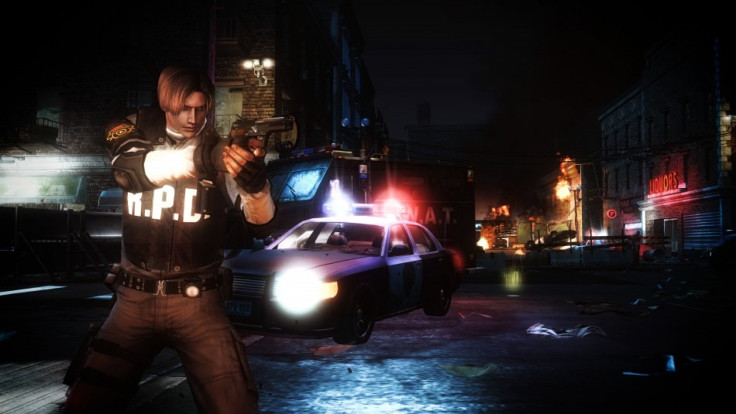'Resident Evil: Operation Raccoon City' Review: 5 Reasons Gamers Should Think Twice Before Buying, 'Terrible Execution' [VIDEO]

Resident Evil Raccoon City, the latest installment of the zombie post-apocalyptic shooter franchise, just hit North American stores on March 20th. But with its new release, the series known for its dark thriller-esque gameplay style is veering away from its original intent. For fans, Resident Evil: Operation Raccoon City could be a hiccup in the franchise's generally successful history. Here are five key points gamers should know before joining forces with Umbrella.
1. Plot. The game centers on the viral outbreak in Raccoon City, acting as an alternate perspective of Resident Evil 2 and 3. Playing as a member of the Umbrella Security Service, the objective is to collect virus samples from around Raccoon City and eliminate any evidence of the corporation's involvement. It's a brilliant concept, one that could have made for an extremely badass story and shed light on these well-known Resident Evil events, wrote IGN. Unfortunately, all of this potential is squandered by some strange choices and truly terrible execution.
2. Multiplayer is key. Operation Raccoon City is strongest in its multiplayer realm, with a campaign mode sprinkled over the cooperative gameplay aspect. There are a few differences that distinguish the new release from its predecessors. For example, instead of capturing a flag, players trace down T-virus vials and bring them back to base. Another option, called Heroes Mode, allows gamers to control staple characters from previous Resident Evil games, Kotaku reports. ORC's not worth playing as a single-player experience, writes Kotaku's Evan Narcisse. And as an online-focused game, 'Raccoon City's got more going for it than its most direct predecessor 'Resident Evil Outbreak.'
3. Character AI is lacking. In a game with such a long running plot (or any game that wishes to be taken seriously), the artificial intelligence of characters is a critical component to the gameplay experience. The way characters interact is just as important as graphics and detailed settings when it comes to bringing a game to life. And this is another area where the latest Resident Evil game failed, according to Game Informer. The human AI is somehow more brain-dead than the shambling corpses, wrote Tim Turi of the gaming magazine. I've seen teammates run headlong into laser mines and enemy soldiers practice power squats behind cover or straight up ignore me.
4. Buggy controls. Fighting of zombies in the midst of an outbreak while retrieving the T-virus could prove to be quite difficult without precise controls. Raccoon City was criticized for its shoddy, glitchy gameplay controls, with reviewers honing in on the action button's functions. The action button's mapped to too many things, wrote Kotaku. It triggers a dodge while running, picks up items and resurrects teammates. The last two functions clash frequently because allies drop weapons when they die.
5. Breakaway from the series. Chances are, fans of the series have grown up playing the Resident Evil franchise, reminiscing on its earlier PlayStation debut and subsequent follow ups. The game has always been a chilling, somewhat eerie endeavor, with players fearing a brain-eating infected corpse around every corner. But the new release strays from this established trademark, putting more emphasis on fast paced gunplay according to Game Informer. Resident Evil used to be one thing: a scare-focused, resource management survival nightmare, wrote Kotaku. But it's mutated so much over the last decade that it feels mercurial or even diluted.
SlantSix and Capcom may have gone off the reservation here, producing an offshoot that hasn't quite lived up to the Resident Evil name. But it sounds like Capcom is ready to come back strong with the next addition to the franchise, Resident Evil 6, which is expected to hit stores this holiday season.
© Copyright IBTimes 2024. All rights reserved.






















